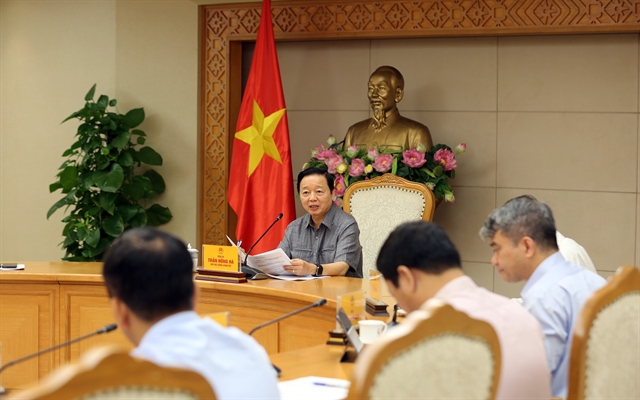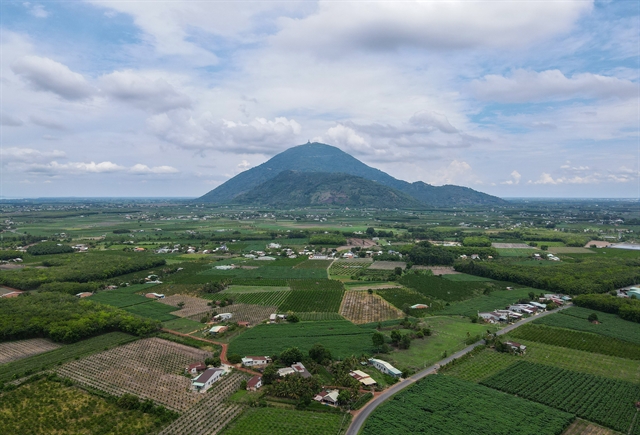 Economy
Economy


|
| Deputy Prime Minister Trần Hồng Hà at the meeting. — Photo baochinhphu.vn |
HÀ NỘI — Deputy Prime Minister Trần Hồng Hà chaired a meeting on Thursday to discuss the draft decree on assigning tasks, placing orders and selecting Vietnamese organisations and enterprises to provide railway industrial services and goods.
According to the report by the Ministry of Construction, the draft decree aims to establish a legal framework that gradually forms core enterprises to lay the foundation for the domestic railway industry’s development, creating a production supply chain for railway industrial products and goods.
This will lead to the gradual mastery of technology to create nationally recognised railway products.
The draft decree introduces new provisions that, for the first time, regulate tasks assigned under the 2025 Railway Law and relevant resolutions of the National Assembly.
It seeks to address practical challenges, such as the lack of regulations on assigning tasks and placing orders for railway industrial goods and services using budget funds, other than regular expenditures.
The draft decree has revised and improved the criteria for selecting suppliers to ensure that enterprises with real capabilities are chosen. These enterprises must be able to access advanced railway technology, play a leading role in the domestic industry, participate deeply in the supply chain, and gradually master technology to build a national brand in the railway sector.
The criteria include financial capacity, facilities, human resources, experience in carrying out tasks, and product quality.
Notably, smaller enterprises are allowed to participate in some components of the railway industrial goods and services, acting as auxiliary partners. This will form the foundation for the development of a local industrial support chain, boosting the overall development of the Vietnamese railway industry.
The draft also outlines procedures for assigning tasks and placing orders, and specifies the responsibilities of both the agencies placing the orders and the suppliers.
Concluding the meeting, Deputy PM Trần Hồng Hà emphasised that the highest goal was to form an independent, self-reliant railway industry capable of mastering the value chain and core technology.
The development strategy should be clearly framed in line with the guidance of the Party and State on the development of key industries, particularly mechanical engineering, design and integrated technology.
The Deputy PM urged that the product list and core value chain be clearly defined, focusing on key railway sectors. Priority should be given to developing high-speed rail, as mastering this area will automatically lead to mastery over lower sectors.
The State needed to “order” previously unavailable products and technologies, leading to a breakthrough in domestic production capacity, noted the Deputy PM.
Enterprises involved must have clear technology transfer plans, commit to increasing the localisation ratio over time, have research institutes, engineers, design and manufacturing capabilities, and meet international technical standards, he added.
They should also be able to organise production ecosystems with a network of suppliers, demonstrating their ability to link and organise a synchronised production chain.
The government must ensure a stable consumption market for ordered products and provide exceptional support policies for enterprises to research, transfer technology, train human resources, and develop research institutes.
Additionally, an evaluation council should be established to select enterprises, and the criteria and product lists must be transparent and legally sound in task assignment.
On the ordering mechanism, the Deputy PM confirmed that the State, not local authorities or private investors, was the ordering entity. However, this was a new, complex issue with no precedent, and its scope of application should be limited to sectors that were not yet developed to avoid overextension, he noted.
Ministries and agencies should develop specific roadmaps, implement model projects, and refine legal frameworks and registration procedures. The focus should be on concrete, practical products with high applicability. — VNS




